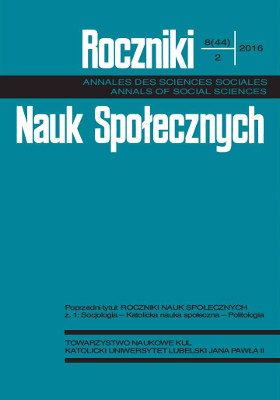Główne przyczyny i przejawy kryzysów w Unii Europejskiej oraz ich implikacje dla dalszego procesu integracji europejskiej
Main reasons and symptoms of crises in the European Union and their implications to further European integration process
Author(s): Mieczysław StolarczykSubject(s): Recent History (1900 till today), Security and defense, Migration Studies, EU-Approach / EU-Accession / EU-Development
Published by: Towarzystwo Naukowe KUL & Katolicki Uniwersytet Lubelski Jana Pawła II
Keywords: integration; European Union; EU crisis; EU disintegration; crisis in Eurozone; migration crisis;
Summary/Abstract: The main objective of the present article is to outline issues related to the main reasons and symptoms of the crises that have emerged in the European Union (EU) in the second half of the 21st century and to indicate their direct implications to the realization of integration project in Europe. The European Union is currently facing a number of crises: the euro zone crisis, the Common Foreign and Security Policy (CFSP) and Common Security and Defense Policy (CSDP) crises, the migration crisis, the crisis related to the Great Britain’s referendum on the EU membership and the crisis related to the leadership of the EU accepted by all the member states. The enumerated crises led to increased disintegration tendencies in the EU, which entail: tendencies to different levels of integration in the EU, “renationalization” of EU member states’ policies and decrease in attractive– ness of the European integration model.
Journal: Roczniki Nauk Społecznych
- Issue Year: 44/2016
- Issue No: 3
- Page Range: 11-44
- Page Count: 34
- Language: Polish

